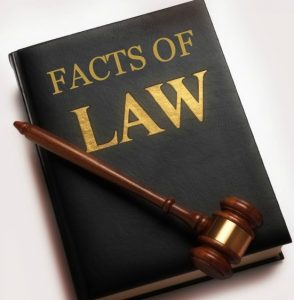Memorandum To Local Boards Of Health Regarding Threats To Cause
Lifting Of Covid-19 Mandates Allegation/Response — READ BELOW
For Copy of PDF Memo, Click on –> Final Memo Allegation.Response 3.4.22
Local board of health members and staff have shared correspondence demanding the lifting of COVID-19 mandates and identifying a number of “violations” of local, state, federal, and international law, claiming that they are individually liable unless they acquiesce to the demands. Many of these are entitled Notice of Violation. Parts of the correspondence being sent to our local boards of health appear to be pre-written and provided on the internet. For instance, we have located a template with nearly identical verbiage at this web address: We located similarly written correspondence on the following website: https://bondsforthewin.com/intent-to-file-claim/. These intimidating emails are being utilized against boards of health and school boards in other states as well — Click here for more info.
These boiler-plate allegations ignore over one hundred years of jurisprudence in Massachusetts that outlines a local board of health’s authority to enact regulations that it deems necessary to protect the residents of its town or city. The following are examples of the types of erroneous allegations made in these types of correspondence.
1. Allegation: There is no statutory law that requires you, your employees, or your customers to wear a mask, get their temperature taken or stay six feet apart.
Response: This is misinformation. The fact that there may be no statutory law, does not mean there is no law. Laws can be found in case law as written by courts, emergency orders, state regulations, local orders, and regulations. Statutory law is just one form of law.
2. Allegation: There is no law that requires you to serve your customers outside or reduce the number of people in your business establishment.
Response: This is misinformation. The fact that there may be no statutory law, does not mean there is no law. Laws can be found in case law as written by courts, Emergency Orders, state regulations, local orders, and regulations. Statutory law is just one form of law.
3. Allegation: In fact, if you require your customers to wear a mask or restrict their movement or entry if they are not wearing a mask, you are at risk for violating several federal and state laws.
Response: This is misinformation. No laws, including laws relative to constitutional rights, are absolute. They are all subject to public health protections as noted in the landmark U.S. Supreme Court case of Jacobson v. Massachusetts, 197 U.S. 11 (1905).
4. Allegation: No law is valid or lawful that violates the Constitution.
Response: Limiting or even extinguishing one’s Constitutional rights does not violate the Constitution when it is necessary to do so to either protect public health or to protect another constitutional right. Sometimes constitutional rights conflict. For instance, the right to privacy can conflict with the government’s compelling right to protect public health.
5. Allegation: Requiring someone to wear a mask is a violation of the First Amendment Right to Religious Expression.
Response: Incorrect. A mask mandate for all residents is facially neutral and need only be rationally related to the interest of stopping the spread of COVID-19. Delaney v. Baker, 511 F. Supp. 3d 55, 73-74 (D. Mass. Jan. 6, 2021).
6. Allegation: Requiring someone to wear a mask is a violation of the First Amendment Right to Free Speech.
Response: Incorrect. Wearing a mask does not include a significant expressive element, mask mandates do not have the effect of singling out those engaged in expressive activity, and mask mandates do not impose more than an incident burden on speech. Homeaway.com, Inc. v. City of Santa Monica, 918 F.3d 676, 684 (9th Cir. 2019).
7. Allegation: Requiring someone to wear a mask is a violation of the First Amendment to Right to Assemble.
Response: Incorrect. The mask mandate applies equally to all residents and its purpose is unrelated to speech. See Ward v. Rick Against Racism, 491 U.S. 781, 791 (1989). Further, mask mandates further the substantial government interest of stopping the spread of COVID-19, are narrowly tailored to serve that interest, and mask mandates allow ample methods of communication (including assembling with masks on). McCullen v. Coakley, 573 U.S. 464, 477 (2014).
8. Allegation: Forcing a person to wear a mask is a violation of the Fourth Amendment Right to Privacy.
Response: Not true. A person’s “right to be left alone by other people” is left to the law of the individual states and is not contained in the Fourth Amendment. Katz v. United States, 389 U.S. 347, 350 (1967). Because the mandate is applicable to all residents, wearing a mask does not concern the disclosure of sensitive information. Parents for Privacy v. Barr, 949 F.3d 1210, 1222 (9th Cir. 2020). Nor does it interfere with important decisions related to the most intimate of human activities and relationships. Carey v. Population Servs. Int’l, 431 U.S. 678, 684 (1977).
9. Allegation: Requiring someone to wear a mask is religious discrimination under the Civil Rights Act of 1964.
Response: The Civil Rights Act allows for individuals to bring a claim for a violation of First Amendment rights. 42 U.S.C. § 1983. For there to be discrimination because of religious belief, the religious belief must be sincerely held, and the belief must be “religious in nature, in the claimant’s scheme of things.” Africa v. Pennsylvania, 662 F.2d 1025, 1030, 1032 (3d Cir. 1981). A claimant must show that the opposition to wearing a mask is a “religious belief.” Brown v. Children’s Hosp. of Philadelphia, 794 F. App’x 226 ,227 (3d Cir. 2020). It is unlikely that a resident will show that wearing a mask is against a religious belief, as opposed to a “personal moral code.” Africa, 662 F.2d 1025 at 1034.
10. Allegation: Requiring someone to wear a mask is discrimination under Title II of the Civil Rights Act.
Response: No, as long as the mask mandate is appliable to all citizens and no person is treated less favorably than similarly situated persons who are not members of a protected class. Manning v. Whole Foods Market Group, Inc., 2022 WL 195999, at *6 (D. Mass. Jan. 31, 2022); see Slocomb v. Waffle House, Inc., 365 F. Supp. 2d 1332, 1338 (N.D. Ga. 2005).
11. Allegation: Requiring someone to wear a mask violates the American with Disabilities Act.
Response: The ADA only applies to people with qualified disabilities. To assert a viable claim for failure to make modifications, plaintiffs must allege: (1) they are qualified individuals with a disability; (2) the place the defendant owns, leases, or operates is a place of public accommodation; and (3) the defendant took adverse action against the plaintiffs based upon the plaintiffs’ disabilities. Feist v. Louisiana Dep’t. of Justice, 730 F.3d 450, 452 (5th Cir 2013).
12. Allegation: Requiring someone to wear a mask violates 18 U.S.C. §§ 241-42.
Response: There is no private right to action under 18 U.S.C. §§ 241-42. Cok v. Cosentino, 876 F.2d 1, 2 (1st Cir. 1989).
13. Allegation: Requiring someone to wear a mask violates Art. I of the Massachusetts Constitution.
Response: Review of equal protection claim under the Massachusetts is the same as the review under the Federal equal protection claim. Commonwealth v. Roman, 179 N.E.3d 1091, 1097 (Mass. 2022). A mask mandate is not a violation of the Equal Protection Clause (14th Amendment) because it is rationally related to the government interest of stopping the spread of COVID-19. Ga. Elec. Life Safety & Sys. Ass’n v. City of Sandy Springs, Ga., 965 F.3d 1270, 1275 (11th Cir. 2020).
14. Allegation: Requiring someone to wear a mask violations Art. XXI of the Massachusetts Constitution.
Response: Article XXI provides immunity to legislative members during debate of legislative actions. Coffin v. Coffin, 4 Mass. 1 (1808).
15. Allegation: Requiring someone to wear a mask violates Art. II of the Massachusetts Constitution.
Response: The standard for freedom of speech, non-establishment of religion, and equal protection claims arising under the Massachusetts Declaration of Rights is the same as applies under the United States Constitution. Shurtleff v. City of Boston, 2020 WL 555248, at *3 (D. Mass. Feb. 4, 2020). A mask mandate for all residents is facially neutral and need only be rationally related to the interest of stopping the spread of COVID-19. Delaney v. Baker, 511 F. Supp. 3d 55, 73-74 (D. Mass. Jan. 6, 2021).
16. Allegation: Requiring someone to wear a mask is practicing medicine without a license.
Response: No. In interpreting Massachusetts law, the Massachusetts district court has found no basis that requiring persons to wear a mask equates to practicing medicine. Manning v. Whole Foods Market Group, Inc., 2022 WL 195999, at *7 (D. Mass. Jan. 31, 2022).
17. Allegation: Board of Health has no authority to enforce laws.
Response: It is well-established law that local boards of health may promulgate regulations to support public health measures to combat an epidemic of disease. Jacobson v. Commonwealth of Massachusetts, 197 U.S. 11, 27 (1905). It is also well established that local boards of health may promulgate regulations that interfere in commerce “to protect public health by any rational means.” Druzik v. Bd. of Health of Haverhill, 324 Mass. 129, 139 (1949) (citing Lawrence v. Bd. of Registration on Med., 239 Mass. 424, 428 (1921)). Local boards’ authority is found in statutes (G.L. c. 111, § 122-25); regulations (105 CMR 400.200(B), 310 CMR 11.05); and case law.
18. Allegation: Requiring someone to wear mask violates G.L. c. 272, § 98.
Response: No, if mask mandates are appliable to all citizens and no person is treated less favorably than similarly situated persons who are not members of a protected class. Manning v. Whole Foods Market Group, Inc., 2022 WL 195999, at *6 (D. Mass. Jan. 31, 2022); see Slocomb v. Waffle House, Inc., 365 F. Supp. 2d 1332, 1338 (N.D. Ga. 2005).
19. Allegation: Requiring someone to wear a mask violates G.L. c. 12, § 11H.
Response: In order to establish a claim under the Civil Rights Act, a plaintiff must prove that (1) her exercise or enjoyment of rights secured by the constitution or the laws of either the United States or the commonwealth, (2) have been interfered with, or attempted to be interfered with, and (3) that the interference or attempted interference was by threats, intimidation, or coercion. Roman v. Trustees of Tufts College, 461 Mass. 707 (2012). There has been no decision in Massachusetts holding that mask mandates violate rights secured by Constitution.
20. Allegation: Requiring someone to wear a mask violates Art. CXIV of the Massachusetts Constitution.
Response: Art. CXIV only applies to people with qualified disabilities.
Unlike Public Records Requests, there is no requirement to respond to these Notices of Violations. In fact, in most cases a response will probably just result in additional notices.
THIS INFORMATION IS PROVIDED FOR LEGAL EDUCATIONAL PURPOSES ONLY AND IS NOT TO BE CONSTRUED AS LEGAL ADVICE. LEGAL ADVICE CAN ONLY COME FROM MUNICIPAL ATTORNEYS.

